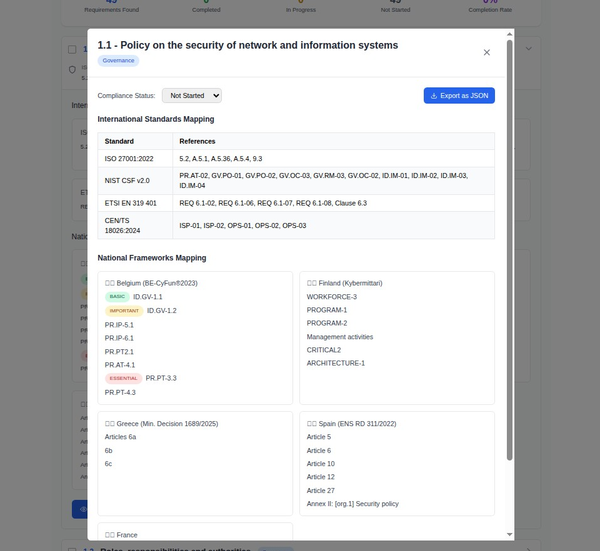Understanding the Act on the Protection of Personal Information (APPI): Japan's Framework for Data Privacy

Introduction
In Japan, the Act on the Protection of Personal Information (APPI) is the primary legislation governing the processing of personal data. First enacted in 2003, the APPI has undergone significant amendments, particularly in 2017 and 2020, to address emerging challenges in data protection and align with global standards such as the EU General Data Protection Regulation (GDPR). The APPI aims to balance the protection of individuals' personal information with the operational needs of businesses in an increasingly digital economy.

What is the APPI?
The APPI is a comprehensive data protection law that applies to the handling of personal information by private sector organizations in Japan. The law defines personal information as data related to a living individual that can identify them through attributes such as name, date of birth, biometric data, or other descriptors.
Entities that process personal data are referred to as Personal Information Handling Business Operators (PIHBOs), and they are subject to strict obligations regarding the collection, use, management, and transfer of personal information.
Key Provisions of the APPI
The APPI establishes a structured framework to ensure responsible data handling. Below are the core provisions:
- Proper Acquisition of Personal Information
- PIHBOs must clearly specify the purpose of data collection and acquire personal information through lawful and fair means.
- Restriction by the Purpose of Use
- Personal data cannot be processed beyond the originally stated purpose without obtaining prior consent from the individual.
- Security Control Measures
- Organizations must implement appropriate safeguards to prevent leakage, loss, unauthorized access, or modification of personal data.
- Supervision of Employees
- PIHBOs must train and supervise employees handling personal data to ensure compliance with security protocols.
- Supervision of Contractors
- When outsourcing personal data processing, organizations must monitor and enforce compliance among third-party vendors.
- Restriction on Third-Party Provision
- Personal data cannot be shared with third parties without the individual's consent, except under specific legal exemptions.
- Cross-Border Data Transfers
- If transferring data outside Japan, organizations must ensure that the recipient country has adequate data protection laws or obtain individual consent.
- Disclosure of Personal Information
- Upon request, organizations must provide individuals with access to their personal data without undue delay.
- Correction of Personal Information
- If an individual requests a correction, addition, or deletion of their personal data, the organization must conduct a prompt investigation and implement changes as necessary.
- Utilization of Anonymously Processed Information
- PIHBOs may use anonymized data freely, provided they follow established procedures for irreversible anonymization.

Compliance with the APPI
Compliance with the APPI is mandatory for all businesses handling personal data in Japan. Failure to comply can lead to severe penalties, including fines and imprisonment. To maintain compliance, organizations should:
- Regularly audit and update data protection policies.
- Establish and train a Data Protection Officer (DPO) or equivalent role.
- Implement privacy management frameworks aligned with international standards.
- Strengthen data breach notification mechanisms to inform authorities and affected individuals promptly.
Recent Amendments and Global Impact
The 2020 amendments, which took effect in April 2022, introduced stricter data breach notification rules, stronger rights for individuals, and enhanced cross-border data transfer regulations. These changes bring the APPI closer in alignment with the GDPR, making it easier for Japanese companies to conduct international business while ensuring strong privacy protections.

Conclusion
The Act on the Protection of Personal Information (APPI) provides a comprehensive legal framework for data protection in Japan, ensuring that businesses handle personal data responsibly. It establishes clear guidelines for privacy protection, balancing individual rights with legitimate business interests.
As data privacy laws continue to evolve globally, understanding and complying with regulations like the APPI is crucial for businesses operating in Japan and internationally.
Disclaimer: This article is for informational purposes only and does not constitute legal advice. For detailed compliance guidance, please consult a legal expert specializing in Japanese data protection law.








